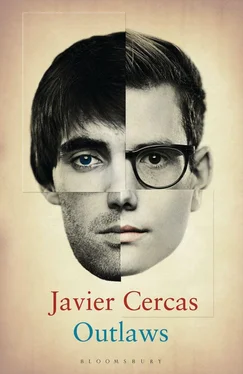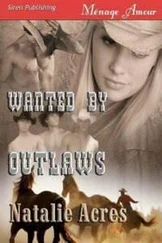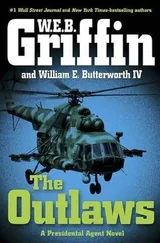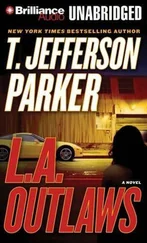‘I don’t know.’
‘Me neither.’
‘Is that the end of the story?’
‘Almost. The rest isn’t of much interest any more. Although this is a small city and everybody knows each other here and everybody’s paths cross, I didn’t see Gafitas again for a long time. I did see his father a couple of times, in the street, and both times he recognized me, looked at me and greeted me with an almost invisible nod, without approaching or saying anything to me. Gafitas reappeared many years later, ten or twelve at least, but by then he was no longer Gafitas but Ignacio Cañas, recently graduated from Barcelona and starting to make a professional name for himself in the city. The first few times we met in that period we pretended not to know each other, didn’t even say hello, but at the beginning of the nineties I was named the civil governor’s security advisor and, since the civil government building is almost right across the street from Cañas’ office, we began to see each other with some frequency and more than once we had to talk about work-related things. That was when our interaction changed; I won’t say we became friends, but we did maintain a cordial relationship. Needless to say we never talked about the past, about when we’d met and how we’d met and such. In fact, I think a moment arrived when I almost forgot that Ignacio Cañas had been Gafitas, just as he must have forgotten that I’d been the same cop that had pursued them, him and Zarco’s gang, through the dives of the district. Later I left my job at the civil government and Cañas and I practically stopped seeing each other. And that is the end of the story.
‘And now we are done, right?’
‘After the robbery of the Bordils branch of the Banco Popular and Inspector Cuenca’s visit to Colera, my father and I stayed in the village for several more days. I don’t know why, though I imagine that the fact that the morning after our arrival I woke up with a fever must have had something to do with it. It was a Thursday, and for forty-eight hours my temperature remained high and I didn’t get out of bed, sweaty and tortured by nightmares of persecution and prison, victim of a simple summer cold according to the doctor who came to see me, victim of a panic attack as I now believe. My father didn’t leave my side. He brought me fruit, water and instant soup and spent hours sitting by my bed, reading newspapers and cheap novels that he bought at the kiosk in the plaza, barely speaking or asking any questions, whispering into the phone in the dining room every once in a while to my mother, who he convinced to stay home.
‘On the Saturday I felt better and I got up, but I didn’t go outside. That was when my father’s questions started coming. There were so many, or I had so much to tell him, that we spent the whole morning talking. Right after the bank robbery in Bordils, in the bathroom at home and during the trip to Colera, I had told my father the basics; now I told him everything, point by point: from the day Batista moved to our school to the day of the bank robbery in Bordils. My father listened to me without interrupting, and when I finished made me promise not to set foot in the red-light district again and to go back to school as soon as classes began; he in turn promised that Batista would not bother me again. I asked him how he was going to manage that; he answered that when he got back to work he’d talk to his father, and asked me to forget about the matter.
‘For lunch we ate a roast chicken with potatoes that my father bought in the village restaurant and in the afternoon we watched a movie on TV. When it ended, my father went to turn it off, but just at that moment I noticed that an episode of The Water Margin was starting and I asked him to leave it on. It wasn’t just any episode: it was the final one. I had almost stopped following the series when I’d joined Zarco’s gang and, as soon as the episode began, it struck me that it seemed to belong to the same series and at the same time to a different series. The opening, for example. It was the same as ever, but changed at the same time, because the images, which were the same as ever, now meant other things: now the ragtag army of men on foot and horseback carrying weapons and standards was a known army, an army formed by honourable men who in the previous episodes had been cast out beyond the confines of the law by the evil Kao Chiu and who, episode by episode, had been joining up with Lin Chung and the rest of the honourable outlaws of Liang Shan Po. The phrase recited in a voice-over at the beginning of each instalment (“The ancient sages said: Do not despise the snake for having no horns, for who is to say it will not become a dragon. So may one just man become an army”) now also had another meaning: it was no longer conjecture but fact, because Lin Chung had now become an army and the snake without horns had become a dragon. At least that’s how I have always remembered the opening of the episode and the whole episode: the same and different. And a couple of nights ago, knowing I was going to talk to you about the days in Colera, my curiosity was piqued and I downloaded the episode and confirmed that it was just as I remembered it. Shall I tell you?’
‘Go ahead.’
‘As the episode begins, Lin Chung and the outlaws of Liang Shan Po are threatening the capital city of China, where Kao Chiu, the emperor’s favourite, has his lord practically sequestered and the population subjugated by martial law, misery and fear. Kao Chiu has devised a plan to take power: he means to take advantage of the fear of war provoked by the arrival at the gates of the capital of the army from Liang Shan Po with the aim of accusing the emperor of weakness, assassinating him and founding a dynasty of his own. To thwart this strategy, Lin Chung opts to strike with a coup de main ; he and his deputies will infiltrate the city, get to the emperor, reveal Kao Chiu’s deceit and then do away with him. The coup de main is successful and, thanks to Lin Chung’s courage and cleverness and that of his deputies, the capital rises up against the tyranny and Kao Chiu is left with no choice but to flee the city in defeat.
‘Here begins a sort of epilogue that abandons the realism of the series to delve into a hallucination. Kao Chiu flees across a desert of black sand in the company of several soldiers who collapse one by one, weakened by hunger and thirst, until the emperor’s former favourite is left alone and, as he falls from his horse, which runs off, and drags himself pitifully across the sand, reality dissolves around him in a delirium inhabited by his victims from times gone by, with threatening expressions on their faces, with illusory lances, horses, riders, standards and fires that drive him mad and threaten to devour him, until the Liang Shan Po men finally find him and Lin Chung kills him in single combat. This is the finale of the adventure, but not of the episode or the series, which ends with two didactic speeches: the first is delivered by Lin Chung and it is a speech to his deputies in which he announces that, although they have now defeated evil in the form of Kao Chiu, evil can return in other forms and they must remain ever vigilant, ready to fight and defeat it, because Liang Shan Po is not really just the name of a river but rather an eternal symbol, the symbol of the struggle against injustice; the second speech is delivered by an off-camera voice and it is a prophesy: while Lin Chung and his deputies ride off into the sunset, the voice-over announces that the heroes of Liang Shan Po will reappear whenever necessary to prevent the triumph of injustice on earth.
‘That last image is no more than flatulent cliché, a postcard sweetened by epic sentimentalism, but when I saw it that afternoon, in Higinio Redondo’s summer home, I burst into tears; I’m lying: actually I’d already been crying for a long time. I cried for a long time there, in silence, sitting almost in the dark beside my father in that half-empty dining room of some house in a village in the back of beyond, with a despair I neither recognized nor recalled, with the feeling of having suddenly puzzled out the complete meaning of the word failure and having discovered an unknown flavour, which was the taste of adult life.
Читать дальше












